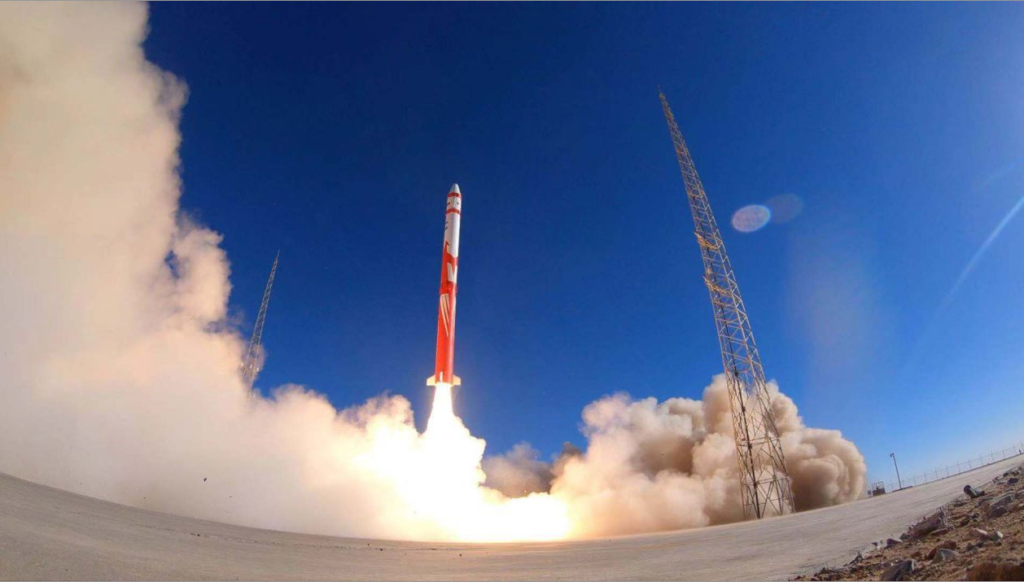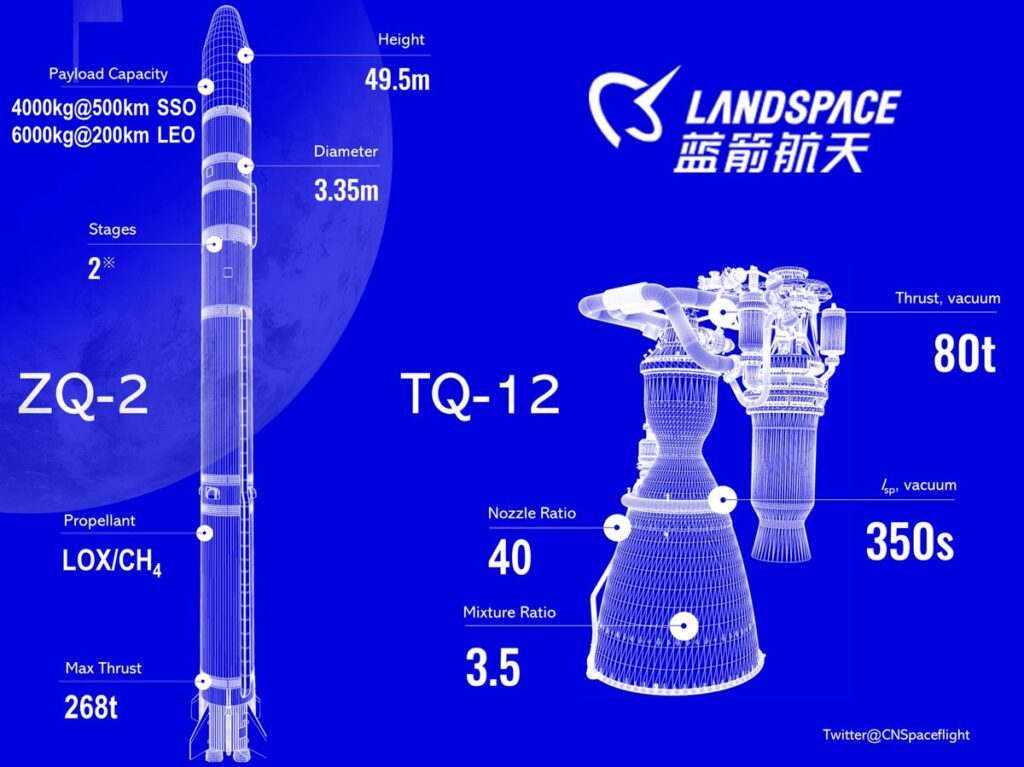LAUNCH
Landspace's Zhuque-2 Rocket Makes History as the First Methane-Powered Vehicle to Successfully Reach Orbit
BY MUSTAFA SYED AHMED
September 26th, 2023
The day is October 27, 2018. Chinese private space launch provider LandSpace is preparing to launch their first-ever rocket into orbit. Founded only in 2015, the young startup looks to make its mark in the aerospace world by attempting to launch the Zhuque-1, the first-ever Chinese private rocket to reach orbit. At 08:00, the rocket is launched. The first stage firing is a success. The rocket continues its ascent into the atmosphere. The second stage firing goes smoothly as well. Hundreds watch as the Zhuque-1 is about to make history, but then tragedy strikes. The third firing stage experiences an anomaly, and the rocket fails to reach orbit. The team at LandSpace is stricken, yet they don't wallow in despair. Soon after the initial failure of the Zhuque-1, LandSpace announces their decision to shift all focus to their newest rocket, the Zhuque-2.

Lift-off of LandSpace's Zhuque-1 rocket carrying the Weilai-1 satellite occurred on October 27, 2018. (Credit: LandSpace)
For the Zhuque-2, LandSpace planned to use a very uncommon form of fuel: Methalox. Methalox is a type of binary rocket fuel composed of liquid oxygen (lox) oxidizer and liquid methane. Despite its limited use in the aerospace industry, it offers numerous benefits. Methalox-based engines can provide more thrust per unit of fuel than most other fuel sources. Additionally, Methalox engines are relatively cheaper to produce than other engines used in rockets. Adding to their cost-effectiveness, these engines are also reusable.
However, the most significant advantage of Methalox engines is their environmental friendliness. Methalox burns very cleanly compared to other fuels; upon combustion, it only produces carbon dioxide, water vapor, and a small amount of NOx (nitric oxide and nitrogen dioxide). In comparison, another commonly used fuel, Kerosene, produces carbon monoxide and sulfur dioxide when burned, which are far more environmentally harmful than any byproducts of Methalox combustion.

Blueprint for the Zhuque-2 and the Methalox Engine (Credit: @CNSpaceflight on twitter)
Finally, after more than four years of development, on December 14, 2022, the Zhuque-2 was ready to launch. The LandSpace team watched in silent anticipation as four years of their hard work were about to be tested. The Zhuque-2 was launched. It quickly approached orbit, and the LandSpace team was almost ready to rejoice. However, fate was not kind to them. Due to an unexpected early shutdown of their second-stage vernier engines, the rocket was unable to reach orbit. Although it seemed that all was lost, the LandSpace team wasn't ready to give up just yet. Despite the launch's failure, the Zhuque-2 still managed to become the world's first orbital launch attempt by a methalox-fueled launch vehicle. This achievement was just enough to keep the LandSpace team going.
On the 12th of July 2023, at approximately 01:00, LandSpace prepared to launch the Zhuque-2 into orbit once again. The first stage firing went as planned. The second stage firing succeeded. Almost five years of work came down to this one moment. The rocket smoothly ascended, and as the third stage firing was reached, this time LandSpace was not let down. The Zhuque-2 successfully reached orbit, becoming the first methalox-fueled launch vehicle to achieve this milestone.

The second Zhuque-2 lifted off at 0100 UTC on July 12, 2023, from Jiuquan.
(Credit: Ourspace)
This was not only a landmark moment in LandSpace's history but also signifies a turning point in the aerospace industry. Many other companies are now looking to shift their engines to be Methalox-based, including household names like SpaceX. With this massive development, it's plausible that Methalox or similar environmentally-friendly fuels will soon start being used outside of rockets and implemented in planes, ships, and more. This could significantly contribute to reducing climate change and global warming.
"The Earth is the cradle of humanity, but mankind cannot stay in the cradle forever."
- Konstantin Tsiolkovsky
Subscribe To Our Newsletter
Receive amazing space news and stories that are hot off the press and ready to be read by thousands of people all around the world.
